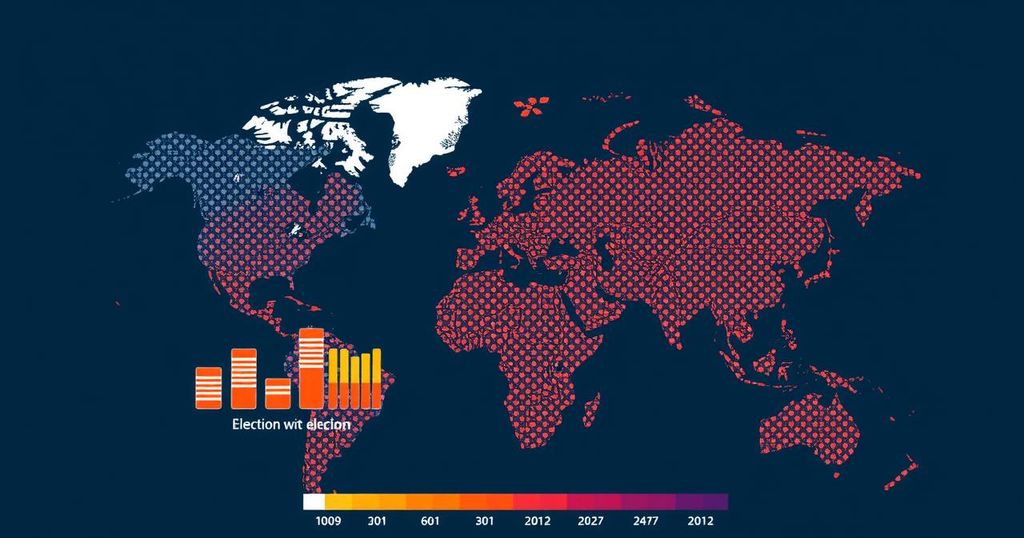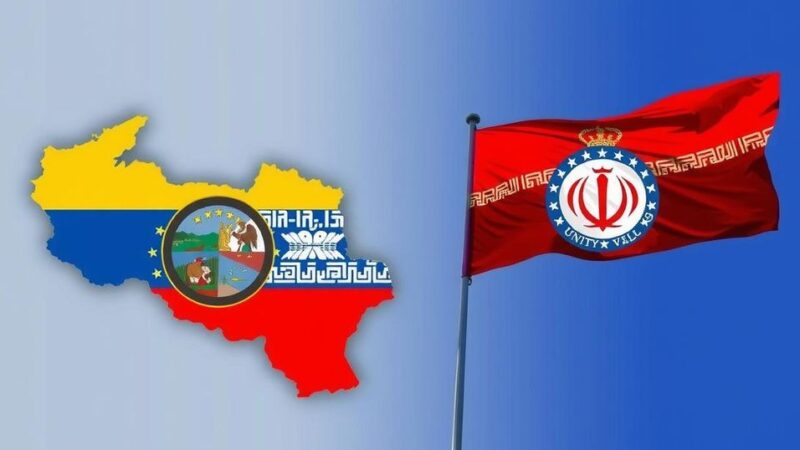The upcoming U.S. presidential election poses critical implications for the global order, reflected in the contrasting visions of Vice President Kamala Harris and former President Donald Trump. As the world grapples with crises like the wars in Ukraine and Gaza, as well as a climate emergency, the outcome will shape America’s international stance, military commitments, and economic strategies. Notably, experts emphasize the necessity for U.S. leadership to uphold global stability amidst shifting power dynamics and pressing humanitarian issues.
In early February 2023, during a visit to Kyiv, President Joe Biden expressed solidarity with Ukraine amidst its ongoing conflict with Russia. His remarks, emphasizing America as a global beacon, set the stage for the unfolding U.S. presidential election. As the American electorate prepares to select their next leader, the choices between Vice President Kamala Harris and former President Donald Trump present critical implications for the global order. The future of U.S. influence hinges on whether Harris will adhere to Biden’s internationalist policies or whether Trump will shift back to an isolationist agenda, advocating for ‘Americanism over globalism.’ The context for this election is a world where U.S. global dominance is increasingly contested. Regional powers are asserting independence, and ongoing conflicts in Gaza and Ukraine call into question Washington’s effectiveness and moral stance in global affairs. Experts caution that federal military spending significantly eclipses that of NATO allies, and Trump’s potential return raises anxiety over commitment to the alliance’s integrity. Rose Gottemoeller, NATO’s former deputy secretary general, asserts, “Donald Trump is Europe’s nightmare,” reflecting the fears surrounding his past statements threatening withdrawal from NATO. In contrast, if Harris wins, she is likely to maintain a pro-NATO stance; however, pressure on European allies regarding military spending is expected to persist. The overall sentiment is that U.S. lawmakers may grow more reluctant to fund foreign conflicts, irrespective of who becomes president. The world also faces heightened risks of significant power confrontations reminiscent of the Cold War period. Comfort Ero, president of the International Crisis Group, acknowledges that while the U.S. remains a key actor in matters of peace and security, its capacity to mediate conflicts is lessening. She notes that current wars have become more complex and intractable, with power dynamics shifting rapidly. Ero articulates concern that whether under Harris or Trump, U.S. diplomacy may not yield enhanced stability: “America is losing the moral high ground.” Both candidates present starkly different approaches towards foreign relations, particularly concerning the Middle East and China. Trump’s proposed policies, including steep tariffs on Chinese imports and potential deals with Russia, evoke mixed reactions. Conversely, Harris’s approach would likely maintain existing tensions while promoting a continued alliance with Ukraine amidst its war with Russia. Climate change is another pivotal issue for the election, with significant global implications. Mary Robinson, a former UN High Commissioner, emphasizes the urgency with which the U.S. must address environmental crises. Under Trump, skepticism towards climate agreements like the Paris Accord poses a risk of regression. Yet, Robinson believes that the momentum surrounding renewable energy efforts is unlikely to be fully reversed, regardless of the outcome. In sum, U.S. leadership, characterized by its military, economic stature, and ethical guidance, is crucial for global stability during turbulent times. Martin Griffiths, a veteran conflict mediator, poignantly states, “the outcome of the US election holds immense significance…given the unparalleled influence the United States wields.” The decisions made in this election will reverberate across international platforms, likely altering the course of the global landscape for years to come.
As the United States approaches a pivotal presidential election, the global landscape is significantly influenced by the actions and policies of its leaders. President Joe Biden’s administration has advocated for a robust international presence, particularly involving allies in crises like Ukraine and the Middle East. The election landscape features Vice President Kamala Harris, who supports continuing Biden’s policies, and former President Donald Trump, whose platform may advocate for a more isolationist approach. The outcomes of these divergent paths will critically impact global security, trade relations, and climate initiatives, prompting experts worldwide to scrutinize the repercussions of American electoral decisions.
The upcoming U.S. election will undoubtedly shape global relations, security dynamics, and climate action. The contrasting approaches of Harris and Trump encapsulate vital choices for America’s role on the world stage. While Harris is poised to continue a legacy of international cooperation, Trump represents a potential pivot towards isolationism. Regardless of the victor, the pressing global challenges necessitate strong U.S. leadership to navigate an increasingly complex international landscape. As the world watches closely, the influence and decisions stemming from this election bear significant consequences for all nations.
Original Source: www.bbc.com






